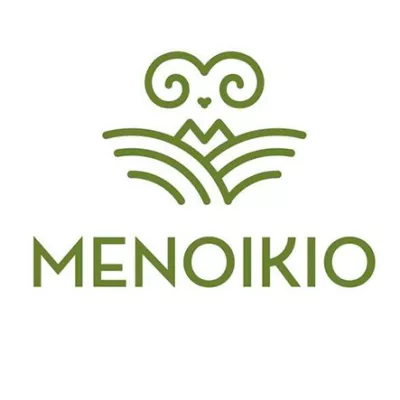General information
RDP Priority
- P6. Social inclusion and local development
RDP Focus Area
- 6B: Local development
RDP Measure
- M19: LEADER/CLLD
Beneficiary type
- Producer group / cooperative / farmer’s association
Summary
Food sustainability and economic diversification were key drivers of this LEADER project from northern Greece. It was designed to reduce food waste and the carbon footprint associated with the production of an innovative dairy product by simultaneously reusing waste from the dairy and wine industries.
The result was a novel dairy fermented product derived from grape seed oil and whey (a by-product of cheesemaking). By repurposing these waste materials, a new dairy product emerged: a nutrient-rich yoghurt drink that can be promoted for its health benefits.
Results
- LEADER support led to a new nutritious food product that is locally unique and provides new income opportunities for the value chain partners and a new healthy choice for consumers.
- The innovative product reduces food loss and waste, while the project also improved a detailed understanding of the product's environmental impact and carbon footprint.
- New cooperation benefits between the dairy and wine sectors highlighted the economic and environmental synergies of working together.

Promoter
Menoikio - Prosotsani Agricultural Industrial Cooperative
Funding
Total budget 59 800 (EUR)
EAFRD: 34 664 (EUR)
National/Regional: 4 206 (EUR)
Private/own: 20 930 (EUR)
Keywords
Context
Greece’s Menoikio agricultural industrial cooperative has a breeding unit for goats and sheep, a feed storage facility and a cheese factory situated in the fertile plain of the municipality of Prosotsani, nestled at the foot of Mount Menoikio. This location in northern Greece enjoys rich soils and good air quality.
A natural ventilation system is created by a 10 kilometre canyon extending from the cooperative’s facilities, ensuring fresh air circulation throughout the day. As a result, despite housing thousands of livestock, the area maintains an atmosphere of freshness and cleanliness. The location is surrounding a 90 acre fenced organic pasture. Here, the animals can graze freely in a protected environment, adapting to seasonal and weather conditions without risk.
Established in 2007, the animal husbandry unit adheres to EU regulations for organic milk and meat production, following the standards of semi-housed animal husbandry. Reducing the farm's carbon footprint has been a multifaceted, ongoing process. Crucial to this effort is sustained investment in science and research, providing up-to-date knowledge on best practices, as well as economically viable solutions for reducing carbon emissions and practically applicable methods to lower other environmental impacts.
The proposed project was directly related to the 'Smart Specialisation Strategy' of Thrace, a region of eastern Macedonia, in the fields of agri-food and environment.
Objectives
This LEADER project aimed to implement an innovative integrated method reducing the environmental impact and carbon footprint of local businesses such as cheese producers, dairies and wineries by:
- Introducing a new local dairy product containing whey and winery by-products (vegetable oil obtained from the grape seeds), which will be of high nutritional value and reflect demand for healthy quality food from consumers and policymakers.
- Reducing food loss and waste by reusing by-products in line with circular economy principles.
- Mitigating the carbon footprint of food production industries.
- Demonstrating the potential for sustainable practices in food production.
- Cooperation between the cooperative and the wine industry to improve the environmental impact.
- Strengthening of the local economy.
Activities
Pilot production of the new diary local product involved testing: a) initial heat treatment of the cheese milk and its subsequent fermentation for the development of taste, aroma and texture; b) addition of vegetable oil as well as stabilisers to improve texture and nutritional value; and c) fruit in various forms (pulp, juice) and flavourings to improve the organoleptic characteristics (taste, sight, smell and feel) of the product.
In addition, research assessed consumer feedback of the new product as well as measurements to determine the carbon footprint, before and after the implementation of the method took place.
Further technical evaluation took place to understand the physicochemical and microbiological parameters of the cheese milk and buttermilk including changes in its composition.
Product development stages advanced with tests on different curd processing techniques and technology followed by safety and serviceability checks. This informed a pilot production phase of the new drinkable dessert which then expanded into full industrial production.
Three actions to disseminate project results were held during 2023 and 2024 in the Drama region.
Main results
- Outcomes led to a new nutritious food product being introduced by the LEADER project.
- This product is locally unique and provides new income opportunities for the value chain partners and a new healthy choice for consumers.
- The innovative product reduces food loss and waste, while the project also improved a detailed understanding of the product's environmental impact and carbon footprint.
- New cooperation benefits emerged between local food and drink businesses and researchers, helping the dairy and wine sectors better appreciate their economic and environmental synergies.
Key lessons
- LEADER can be useful for helping food value chain partners cooperate to create new climate-friendly nutritious food products that support rural economies.
- Business opportunities and policy contributions exist from focusing on reducing food loss and waste.
Contact Information
Email: info@menikio.gr
